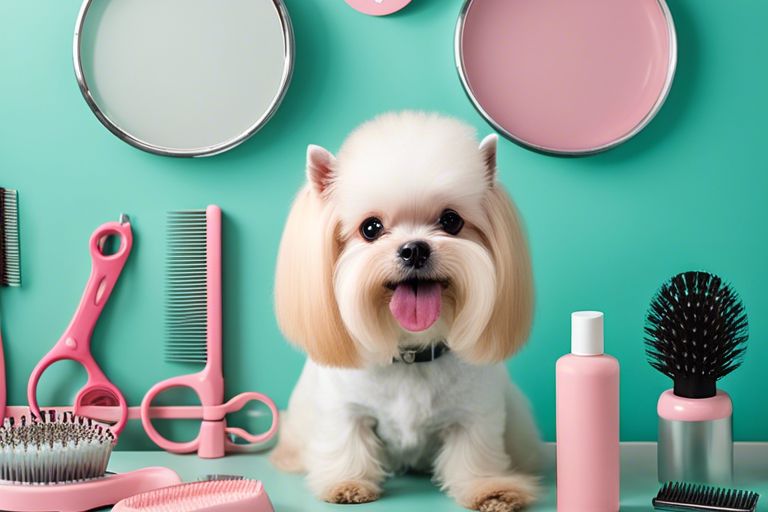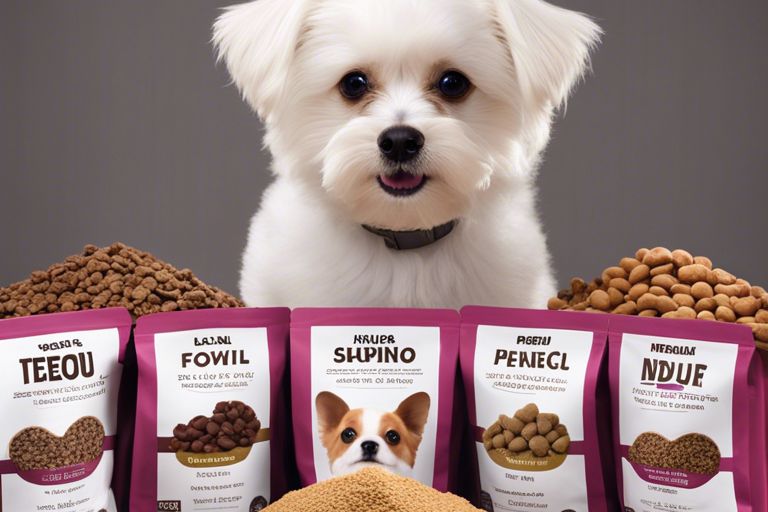Ensuring that your small dog’s coat is healthy and well-maintained is essential for their overall well-being. As a pet owner, keeping your small dog’s coat healthy requires dedication and regularly grooming. One of the best ways to achieve this is by feeding them a high-quality diet that is rich in essential nutrients. Additionally, regular brushing and bathing can help in preventing mats and tangles, as well as keeping their coat clean and shiny. It’s also important to protect their coat from environmental factors such as sun exposure, cold weather, and allergens. By following these best practices, you can ensure that your small dog’s coat remains healthy and beautiful for years to come.
Key Takeaways:
- Regular grooming: Brushing your small dog’s coat regularly helps to remove mats, tangles, and loose hair, and promotes healthy skin and circulation.
- Proper diet: Providing a balanced and nutritious diet with essential fatty acids can help maintain a healthy coat for your small dog.
- Regular vet check-ups: Regular visits to the vet can help detect any coat or skin issues early and address them before they become more serious.
Nutrition and Diet
Obviously, maintaining a healthy diet is crucial for keeping your small dog’s coat in top condition. Just like with humans, a balanced and nutritious diet plays a significant role in the health and appearance of your dog’s coat. Let’s dive into the specifics of nutrition and diet for your furry friend.
Essential Nutrients for a Shiny Coat
When it comes to maintaining a healthy coat, essential nutrients play a crucial role. These include omega-3 and omega-6 fatty acids, which are essential for skin and coat health. These nutrients can be found in fish oils, flaxseed oil, and certain plant-based oils. Additionally, protein is also important for coat health, so make sure your dog’s diet includes high-quality sources of protein such as fish, chicken, or turkey.
The Role of Supplements
Supplements can also play a significant role in keeping your small dog’s coat healthy. While a balanced diet should provide most of the essential nutrients, adding supplements such as fish oil or coconut oil can provide an extra boost. Fish oil supplements are rich in omega-3 fatty acids, which can help improve the overall condition of your dog’s coat. However, it’s essential to consult with your veterinarian before introducing any supplements to your dog’s diet to ensure they are safe and appropriate for your pet’s specific needs.
Grooming and Care
Clearly, grooming and care are essential for maintaining a small dog’s coat healthy and shiny. Regular grooming not only keeps your pet looking great, but it also contributes to their overall health and well-being. In this section, I will share some important tips and techniques for grooming and caring for your small dog’s coat.
Brushing Techniques for Small Dog Breeds
When it comes to brushing small dog breeds, it’s important to use the right tools and techniques. I recommend investing in a high-quality brush or comb specifically designed for small dogs. Regular brushing not only helps to remove loose hair and prevent matting, but it also stimulates the skin and distributes natural oils, which is essential for a healthy coat. I suggest brushing your small dog at least a few times a week, depending on the length and type of their coat. Remember to be gentle and use a light touch, especially around sensitive areas such as the ears and belly.
Bathing: How Often and What Products to Use
When it comes to bathing your small dog, it’s important to strike the right balance. Washing your dog too frequently can strip their coat of essential oils, leading to dryness and irritation, while not bathing them enough can result in a buildup of dirt and oils. I recommend bathing your small dog every 4-6 weeks, or as needed, using a gentle, dog-specific shampoo. Always rinse thoroughly to remove all traces of shampoo, as leftover residue can cause itching and skin irritation. Additionally, be sure to dry your dog completely after a bath, as moisture trapped in the coat can lead to skin issues.
Health Monitoring
Your small dog’s coat health is not only influenced by grooming and nutrition but also by overall health. Monitoring your dog for signs of skin and coat problems and ensuring regular veterinary check-ups and vaccinations are crucial for maintaining a healthy coat.
Recognizing Skin and Coat Problems
It is important to be vigilant and check your small dog’s coat and skin regularly for any signs of problems such as dryness, flakiness, redness, or irritation. These can indicate underlying health issues such as allergies, hormonal imbalances, or parasites. Be on the lookout for excessive itching, biting, or licking as this can also be a sign of skin or coat problems.
Regular Veterinary Check-ups and Vaccinations
Regular check-ups with a veterinarian are essential for keeping your small dog’s coat healthy. A veterinarian can help identify any health issues that may be affecting the coat and skin. Additionally, staying up to date with vaccinations is crucial for preventing diseases that can impact your dog’s overall health, including their coat. Vaccinations protect your dog from dangerous illnesses that can also affect the condition of their skin and coat.
Lifestyle and Environment
Despite the breed of your small dog, your lifestyle and environment play a significant role in the health of your pet’s coat. Taking cues from experts on how to keep my husky’s coat looking healthy and shiny, I have learned that certain lifestyle choices and environmental factors can either positively or negatively impact your small dog’s coat.
Exercise and Its Impact on Coat Health
Regular exercise is integral to maintaining a healthy coat for your small dog. When I exercise my dog regularly, I notice a significant improvement in the texture and shine of its coat. Exercise stimulates the natural oils in the skin, improving the overall health and appearance of the coat. Additionally, it helps to prevent matting and tangling, which can be harmful to the coat and uncomfortable for your dog.
The Effect of Indoor and Outdoor Environments on Your Dog’s Coat
The indoor and outdoor environments I expose my small dog to have a direct impact on its coat health. Spending excessive time indoors under artificial lighting and air can lead to dry and dull fur. On the other hand, allowing your dog to explore outdoor environments can help in maintaining a healthy coat by exposing them to natural sunlight, fresh air, and a variety of stimulating sensory experiences. However, it’s important to note that exposure to outdoor elements also brings the risk of pests and allergens, which can impact coat health. I make sure to regularly groom and remove any foreign debris from my dog’s coat to mitigate these risks.

Keeping Your Small Dog’s Coat Healthy
From above methods I have discussed, I believe the best ways to keep your small dog’s coat healthy include regular grooming, a balanced diet rich in essential nutrients, and providing proper hydration. By brushing your small dog’s coat regularly, feeding them high-quality food, and ensuring they drink enough water, you can promote healthy skin and a shiny, lustrous coat. Additionally, visiting a professional groomer for regular trims and maintenance can also contribute to overall coat health. By following these practices, you can help ensure that your small dog maintains a healthy and beautiful coat for years to come.
FAQ
Q: What are the best ways to keep my small dog’s coat healthy?
A: Keeping your small dog’s coat healthy is essential for their overall well-being. Here are some best ways to achieve a healthy coat:
- Regular grooming: Brush your dog’s coat at least a few times a week to remove tangles, dirt, and loose hair.
- Proper nutrition: Feed your dog a high-quality diet with essential fatty acids to support a healthy coat.
- Regular baths: Bathe your dog using a gentle dog shampoo appropriate for their coat type, and be sure to thoroughly dry them to prevent skin issues.
- Regular check-ups: Visit a veterinarian regularly to address any potential health issues that may impact your dog’s coat.
Q: How often should I groom my small dog’s coat?
A: The frequency of grooming depends on your dog’s specific coat type. However, as a general guideline for small dogs, aim to brush their coat a few times a week to prevent mats and tangling. If your dog has a longer or thicker coat, daily brushing may be necessary to maintain a healthy coat.
Q: Are there any specific products I should use to maintain my small dog’s coat?
A: When choosing grooming products for your small dog, opt for a high-quality dog shampoo and conditioner suited to their coat type. Additionally, consider using a detangling spray or a leave-in conditioner to help manage their coat. Avoid using human products or harsh chemicals, as they can irritate your dog’s skin and negatively impact their coat health.


